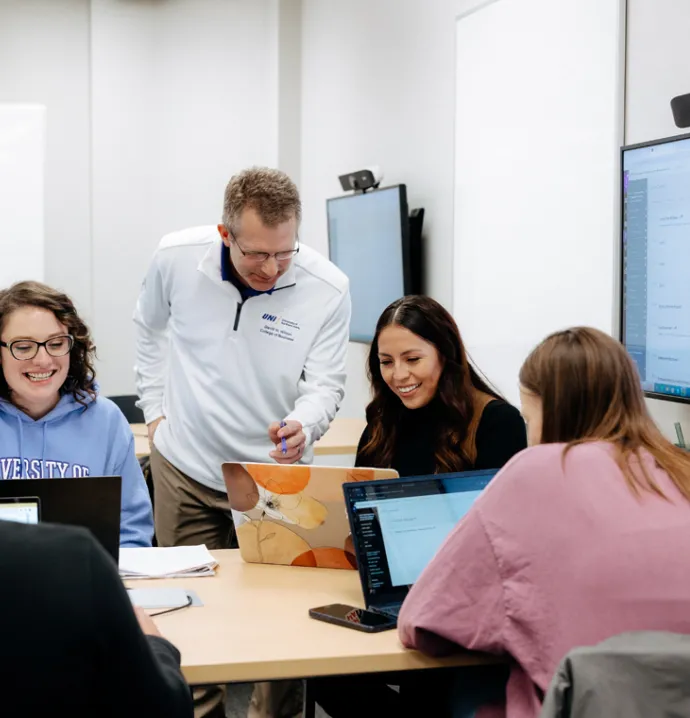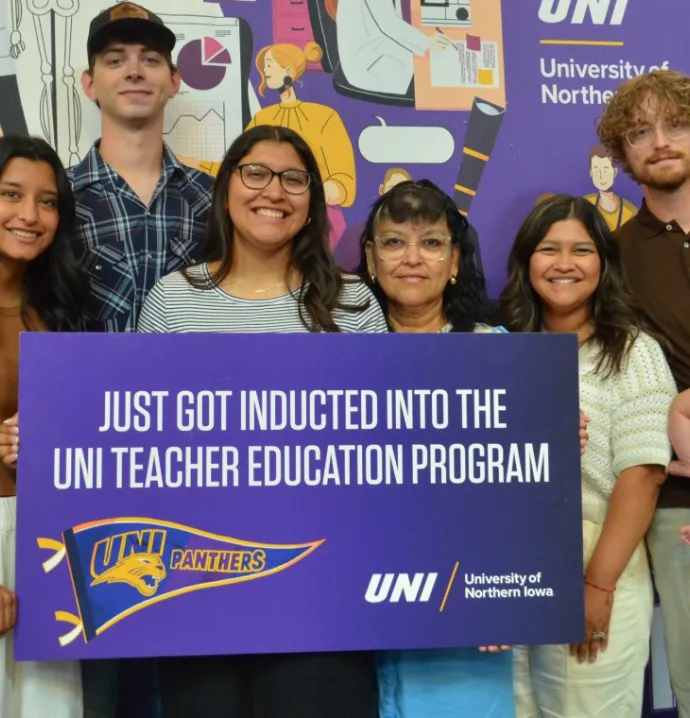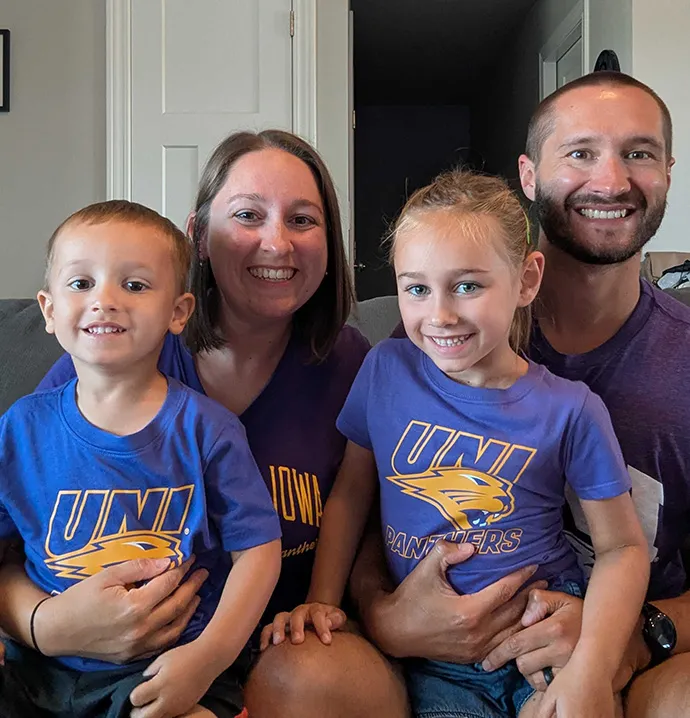UNI Business class helps budget forecast for Iowa Arboretum
UNI Business class helps budget forecast for Iowa Arboretum
Ronnie Chen, assistant professor of finance, loves to bring practical experience into the classroom. When he saw an opportunity to the help the Cedar Valley Arboretum & Botanic, the Waterloo nonprofit arboretum where he has volunteered for a couple of years, with its three-year budget, he seized it.
Robert Pruitt, director of the Arboretum, was struggling with forecasting methods and started chatting with Chen. Chen was hoping to bring this project to his class.
“By design, the financial analytics and modeling class is a very hands-on class,” Chen said. “I thought it’d be a great for the students to work on this project for the Arboretum. The director said it’d be really helpful, just because he didn’t have a formal process to come up with these numbers.”
To start, Pruitt came to class and presented some of the organization’s financial history. He provided operations and numbers from the past five years, marketing strategies and some ideas for the ongoing pandemic. The 16 students then took that into four-person groups and modeled out the next three years.
Brooke Metcalf (Finance and Digital Advertising, ’21) said a unique part of the project was how every group tackled the project differently. For example, her group looked at the past five years of admissions and an increase in the marketing budget to predict an increase in membership and sales over the next three years. They also factored in inflation year after year.
“I know our entire class took such a difference approach to forecasting,” Metcalf said. “It occurred to us that there isn’t a right way to forecast, and there’s multiple things you need to think about.”
Dan Blocker (Finance and Marketing, ’21) and his group looked at the revenue averages from the past five years and tried to pick out outliers — for example, high donations or a sharp decline in sales during the pandemic. They used that to forecast 2022 and ’23, tagging 2021 as a baseline.
“We learned there’s a lot of moving parts, and how one assumption can change the whole scenario,” Blocker said. “If you get this many donations in one year, that could help throw off your revenue for that year. It’s important to take into consideration all the different aspects and assumptions.”
At the end of the project, groups presented their predictions to Pruitt. He was so appreciative, he offered students a couple of guest passes for when the season starts in May. For the students, forecasting was an invaluable opportunity gain real-world experience.
“The stuff we were doing actually matters to our community, and that’s a huge thing,” Metcalf said. “Especially helping a real organization, it brought to life the fact that all of use took a variety of approaches, but in the end [Schneider] was able to use all of them to help his work.”




